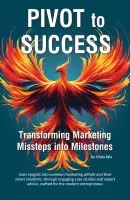- +1 512-591-8295
- [email protected]
- Mon - Fri: 9:00 - 16:00

Psychology is a powerful tool in marketing because it helps us understand how people think, feel, and make decisions. By tapping into these insights, businesses can craft messages that truly resonate with their audience.
Most of you know about my decades of marketing expertise, but not everyone realizes some of my background is also rooted in psychology. Years ago I received my certification in NLP (Neuro-Linguistic Programming), and use psychology-based techniques to help fine-tune messaging and deliver better results for entrepreneurs.
These strategies are about understanding and creating authentic connections. By aligning messages with how people naturally process information, businesses create campaigns that capture attention and drive meaningful action.
At the core of effective marketing is the ability to understand your audience. Psychological principles like decision-making processes, emotional triggers, and communication preferences all play a role in shaping behavior.
For example, consumers often make decisions based on emotions rather than logic, even if they later justify those choices with facts. This concept is one that I repeatedly made sure our team focused on when I was fundraising for nonprofits … people choose to give donations first with their heart, and then use their head to justify their choice and move forward with their donation.
When entrepreneurs leverage these types of insights, they can:
NLP concepts play a significant role here by offering tools to understand and influence how customers perceive and respond to messages.
Neuro-Linguistic Programming, or NLP, is a framework for understanding the connection between how we think (neuro), communicate (linguistic), and behave (programming).
At its core, NLP focuses on identifying patterns in language and thought that influence behavior. It offers techniques like pacing and leading, which align communication with the audience’s state of mind, and anchoring, which helps create strong emotional associations.
By leveraging these tools, businesses can design messaging that feels intuitive, relatable, and persuasive.. Techniques such as pacing and leading help businesses build trust and align their messaging with the audience’s mindset.
Here are some key psychology and NLP-based techniques I use to help entrepreneurs achieve better ROI. You can use the basics of these concepts as well.
Framing is the art of presenting information in a way that highlights its most compelling aspects. For instance, instead of saying, “This product is affordable,” reframing might emphasize, “This product saves you $X every month.”
Related is the recommendation to focus on benefits instead of features. By shifting the focus, the message appeals to the audience’s priorities.
Anchoring involves creating positive emotional connections with a brand or product. For example, I help businesses design messaging and visuals that evoke feelings of trust, excitement, or happiness—emotions that encourage customers to take action.
Certain NLP techniques naturally guide people toward decisions.
For instance, embedding commands (“Imagine how much easier this will make your life”) or using presuppositions (“When you see the results, you’ll wonder why you waited”) make messaging more compelling. These subtle language patterns influence the subconscious, helping messages resonate more deeply.
Mirroring the values and preferences of your target audience fosters trust. Whether it’s through tone, imagery, or messaging style, tailor campaigns to feel personal and relatable—two factors that drive higher engagement.
When I was working in the nonprofit fundraising world, I would use physical mirroring techniques to quickly build rapport with prospective donors. I also do this with my team to help them feel more connected and engaged. They lean back in their chair? So do I. They put their arms on the table? So do I. They tilt their head slightly? So do I. Of course I do so very subtly so that it’s not … WEIRD lol. Mirroring language works similarly.
NLP techniques like matching and mirroring further enhance this connection, making communication feel authentic and trustworthy.
These psychological and NLP techniques aren’t just theories—they deliver tangible results when applied to entrepreneurial marketing. Here’s how:
By understanding the psychological drivers of your audience, businesses can develop accurate customer personas. These profiles inform everything from ad targeting to content creation.
NLP-based strategies reduce friction at every stage of the customer journey. Whether it’s simplifying checkout processes or crafting more persuasive product descriptions, these small adjustments can significantly boost conversions.
In one project, I worked with a small business struggling to engage their audience. By applying framing and anchoring techniques, we transformed their messaging, leading to a 40% increase in engagement within one month.
Clear, NLP-informed communication builds trust with customers. From email sequences to website copy, every word is designed to align with audience expectations and preferences.
The results speak for themselves. Businesses that adopt these techniques often see:
One client, for instance, experienced a 25% boost in sales pretty quickly after refining their marketing messages to align closer with customer behavior. Another reported a significant drop in bounce rates after adopting psychology-driven and NLP-enhanced website content strategies.
By integrating psychological principles and NLP techniques into marketing strategies, entrepreneurs can transform their messaging from ordinary to extraordinary. This approach not only improves campaign performance but also builds stronger, lasting connections with customers.
Discover Psychology-Driven Marketing to Drive Real Results
Schedule a free consultation to help uncover insights tailored to your business.
Get solid marketing strategies, designed for entrepreneurs on the track to 7-figures and beyond, right in your inbox.

This website uses cookies to ensure you get the best experience on our website. By continuing to use the website, you agree to our use of cookies. We do not share or sell your information. More info
